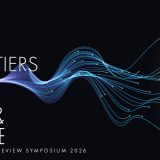
Georgetown Law Professor Presents Case for Originalism at Latest Chapman Dialogue
October 21, 2015
On October 8, Chapman University Dale E. Fowler School of Law welcomed Lawrence B. Solum, the Carmack Waterhouse Professor of Law at Georgetown University Law Center, for the second presentation of the 2015-2016
Chapman Dialogue Lecture Series
. His presentation entitled “
The Case for Originalism: Justifying the Constraining Force of the Constitutional Text
” was moderated by Fowler School of Law Professor Lawrence Rosenthal.
The Chapman Dialogues are a special lineup of distinguished lectures by innovative and thought-provoking legal scholars as well as some of the nation’s most prominent legal practitioners. Invited speakers present their research and ideas to a wide audience of faculty, students, alumni and special guests. Each Dialogue concludes with a lively Question and Answer session, typically led by one or two discussants from among the Fowler School of Law faculty.

In his presentation, Professor Solum outlined the competing fields of originalism and non-originalism as interpretive theories for identifying the meaning of constitutional terms, defending originalism as the more principled interpretive mechanism that best respects the rule of law. As Professor Solum explained, two primary ideas are shared by those who identify themselves as originalists. First, the “fixation thesis” focuses on the contention that there is a fixed meaning to constitutional terms at a fixed time (which Professor Solum identifies as best set at the time of ratification). The second unifying characteristic of originalism, according to Professor Solum, lies in the “constraint principle” – which means that the courts are constrained from overriding the constitutional text. Constraint operates as a form of consistency within the overall system of a rule of law. Professor Solum thereafter effectively contrasted originalism (and its service to these two tenets) with non-originalist views which accept less constraint and therefore fail to adhere as effectively to the mandates of the rule of law that we should expect in a constitutional system. A lively dialogue followed between Professors Solum and Rosenthal, on issues including the empirical testability of the hypotheses of originalists. Both dialogue participants ultimately agreed that ongoing empirical work will undoubtedly enrich our understanding of the original meaning of the Constitution and its terms and help to identify the relative adherence to, or deviation from, that meaning by originalist and non-originalist judges alike.
See the full 2015-2016 Chapman Dialogue schedule
.

Fowler School of Law Professor Lawrence Rosenthal and Associate Dean Donald Kochan with Georgetown Law Professor Lawrence B. Solum (center)
Lawrence B. Solum is the Carmack Waterhouse Professor of Law at Georgetown University Law Center. He is an internationally recognized legal theorist, who works in constitutional theory, procedure and the philosophy of law. He was the John E. Cribbet Professor of Law and Professor of Philosophy at the University of Illinois. He was a member of the law faculty of the University of San Diego, where he received the Thornes Prize as Best Teacher. He also taught at Loyola Marymount University and has been a Visiting Professor of Law at Boston University, at the University of Southern California, and, before joining the faculty, at Georgetown University Law Center.
Professor Solum served as a White Paper Author for the Committee on Alternative Court Structures of the Commission on the Future of the California Judiciary, and he has also served the Association of American Law Schools (AALS) twice as Chair of the Jurisprudence Section, as Chair of the Section on Constitutional Law, as Chair of the Section on Law and Interpretation, as Chair of the Committee on Scholarship, and as a Member of the Committee to Review Scholarly Papers.
Solum is co-author of the monograph
Destruction of Evidence
, widely acknowledged by courts and commentators as the leading authority on its subject. His volume on prior adjudication and related doctrines in
Moore’s Federal Practice
has been cited by the United States Supreme Court and every circuit court of appeal. Professor Solum is also the Editor of Legal Theory Blog, an influential blog that focuses on developments in contemporary normative and positive legal theory. Professor Solum has testified and/or contributed comments to the Judiciary Committee of the United States Senate, the Advisory Committee on the Federal Rules of Civil Procedure, the California State Assembly and the California State Senate. He also contributes to debates in legal theory, including constitutional theory and the intersection of law and political philosophy. Professor Solum’s original theory of the fundamental nature and purpose of law, “Virtue Jurisprudence,” has been debated and discussed in Asia, Europe and North America. He also works on problems of law and technology, including Internet governance, copyright policy and patent law. His most recent work focuses on constitutional interpretation and construction.

